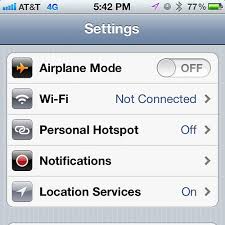 The lingering fallout of the NSA scandal means that privacy is paramount for today’s consumers. A recent study by Mintel reveals that 44% of US consumers are concerned that social networking sites display too much information about them, and 81% are wary of using their mobile phones as a payment device. Many consumers have seen ramifications of over-sharing publicized in the media or firsthand and they feel the demand to take additional measures to protect their security.
The lingering fallout of the NSA scandal means that privacy is paramount for today’s consumers. A recent study by Mintel reveals that 44% of US consumers are concerned that social networking sites display too much information about them, and 81% are wary of using their mobile phones as a payment device. Many consumers have seen ramifications of over-sharing publicized in the media or firsthand and they feel the demand to take additional measures to protect their security.
Societal Saturation
These measures are necessary due in part to the fact that, in today’s culture, many recent technologies are nearing a point of complete societal saturation. Mintel’s research shows the majority of all US adults (93%) who have an interest in cell phones already own one and 92% of 2013 mobile phone sales were smartphones. We have now reached an era where the youngest adult consumers don’t even know what life would be like without Internet. These digital natives are constantly connected without even a second thought.
Developing Need to Unplug
Interestingly, Mintel found 69% of consumers have reported that they feel the need to set aside time to disconnect from being online. By no means am I suggesting that we’ll soon return to an archaic way of life or will abandon digitalization, but I think this represents a growing need to draw the digital line. To know when to unplug. Perhaps this will lead to a reconnection with personal surroundings and a need for products, places and people that force or allow people to disconnect. As people disconnect, they’ll learn to embrace and be in touch with their literal local environment including, where they are, who they’re with and the origin of their good and services.
Hidden Opportunities
Companies have the opportunity to capitalize on this trend. They can facilitate experiences and provide situations for consumers to disconnect from the online world, become more in tune with their physical surroundings, enjoy the company of friends and families and shop in physical retail stores. Needless to say, this could mean huge opportunities for growth in the brick-and-mortar retail industry, restaurant industry and ‘here and now’ entertainment industry, such as movie theaters, amusement parks and many other establishments that seek to provide unique experiences. This year, we’ll see which brands and industries take the lead in recognizing and jumping on this marketing trend and capitalizing on the opportunities it brings with it.
[Tweet "As people disconnect, they’ll learn to embrace their literal local environment." -@RedlinGould"]




